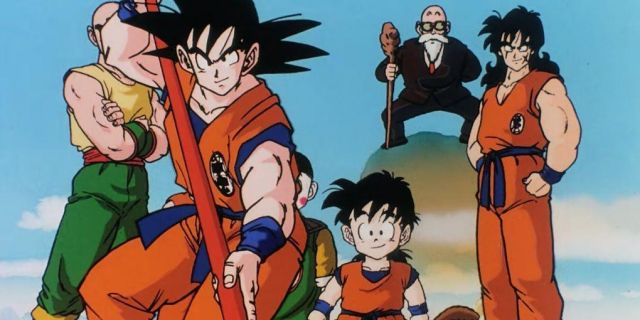Dragon Ball Z is the type of show that virtually every anime fan knows about. Having maintained its cultural relevancy for nearly thirty five years, the series remains a crucial part of the shonen anime catalog, even to this day. For English fans, many dubs have been made for Dragon Ball, with each having various strengths and weaknesses, and some being more notorious than others.
In the beginning of the series run, Harmony Gold licensed an English dub for Dragon Ball. This dub in particular is difficult to really detail because it was never broadcast outside of test screenings. Following this, Funimation licensed the series and recruited voice actors from Ocean Productions. This dub did end up airing, but was cancelled after thirteen episodes. In 2001, Funimation took up the mantle again and re-dubbed the series, which aired from 2001-2003 on Cartoon Network in the United States and Australia, whereas a different production company took over the dub in Canada. The Funimation dub has grown to be very beloved and nostalgic to its fans, but its interesting history shows how it’s truly a mixed bag in terms of dub quality.
Problems With the Funimation Dub
Though there are undeniably some strong aspects of the revamped Funimation dub, it’s also not hard to see where some of the difficulties laid in the company trying to successfully create an English dub in the first place. For one, both dubs cut out or change many plot points and aspects of the story/dialogue from the Japanese version. Though this is not necessarily all that uncommon or even definitively a problem, the Dragon Ball Z dub in particular suffers from some inconsistency and confusing moments due to these changes. One example occurs in episode 108, where Goku explains his power, Instant Transmission, as basically super speed, when in the Japanese version, the power takes the user from one destination to another instantly, which is more in line with the title of the power.
Of course, these minor changes do not make or break the show, but another issue with the English localizations from Funimation was the censoring of virtually any serious, adult topic that appeared in the original series, such as death, nudity and sex, and religious references broadly. Though this improved in the second Funimation dub, it seems that the Funimation team was trying to appeal to younger audiences rather than roll with the more mature topics of the original Japanese Dragon Ball Z series. This turned off many adult fans who appreciated the more dark or intense aspects of the Japanese dub.
Why the Funimation Dub Still Deserves Love
As previously mentioned, the later dubbed episodes of the Funimation dub improved upon the first batch in terms of plot changes from the original, and the creative team did also censor less as the series was redubbed and progressed through its run. In other words, the team at Funimation was able to adapt and tweak the problems fans saw with their adaptation, which shows a commitment on the part of the talents behind the dub to making something fans of the show would love. The original score of the English dub, composed by Shuki Levy and Bruce Faulconer demonstrates real originality and artistic innovation, even if some fans prefer the composition from Kenji Yamamoto. The voice acting is also strong in the redubbed episodes from Funimation, and despite some criticisms, it’s a solid English dub overall, with some really excellent moments as the show went on.
All in all, Dragon Ball Z’s English dub history is complex, and debates over which dub is best are still going strong in online anime communities. As much as there were bumps on the road to Funimation’s ideal Dragon Ball Z dub, what we have from them is a solid and overall good, if imperfect, project.















Leave a Reply